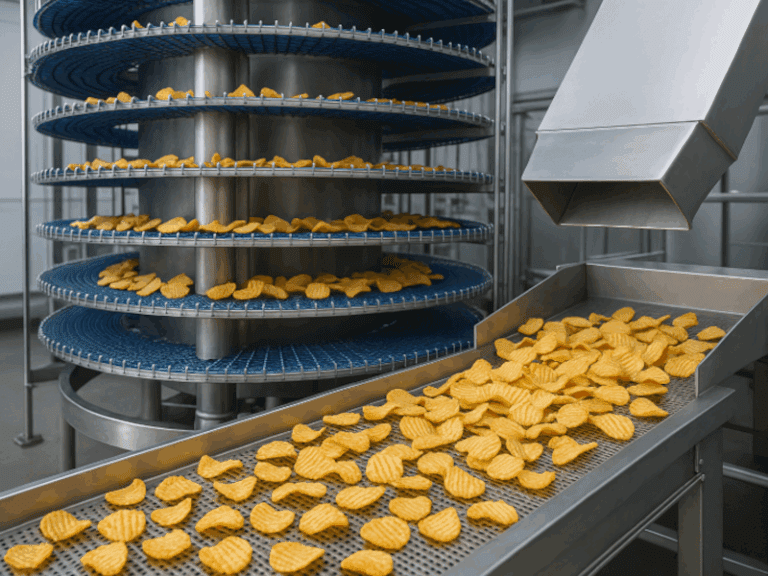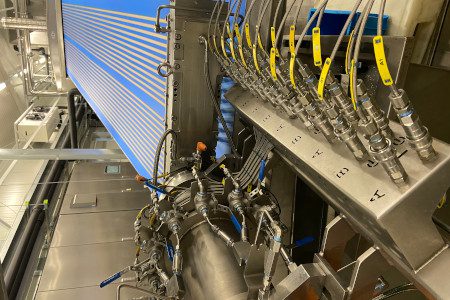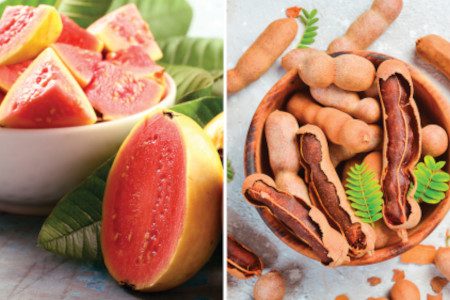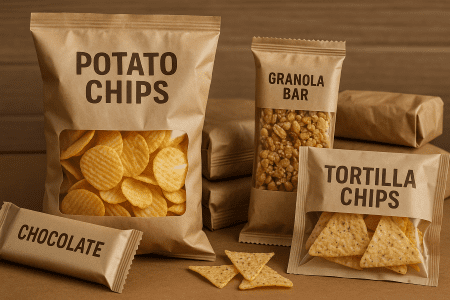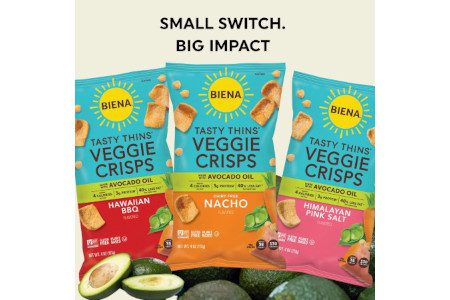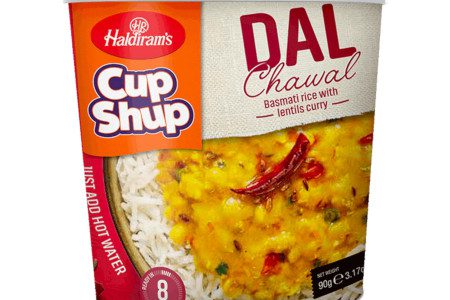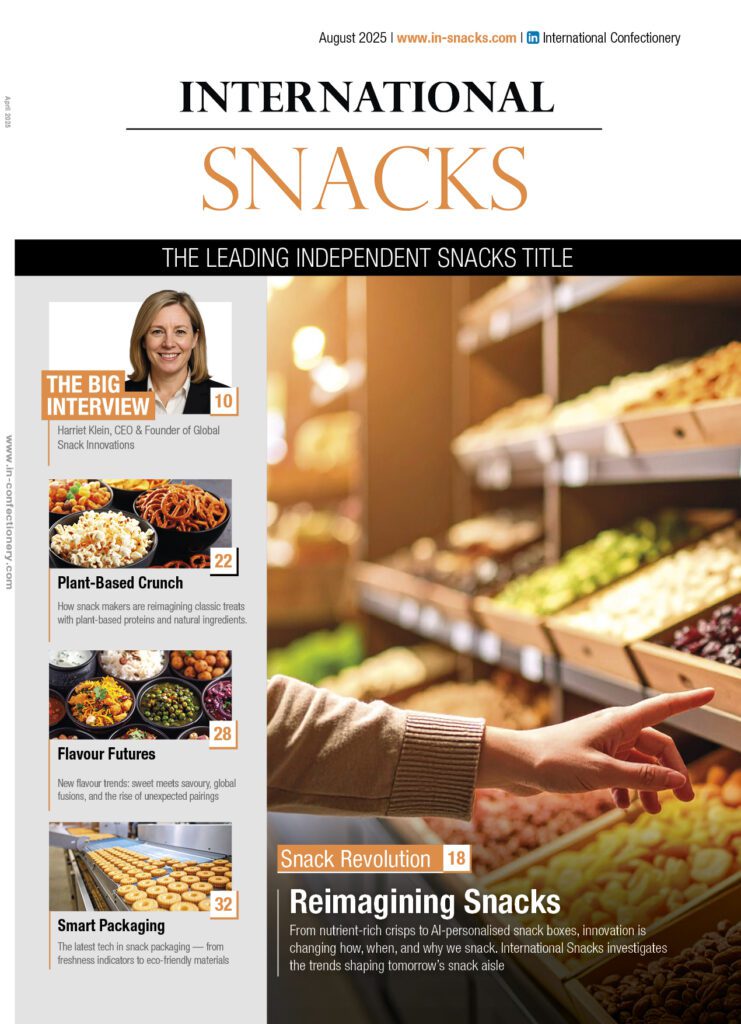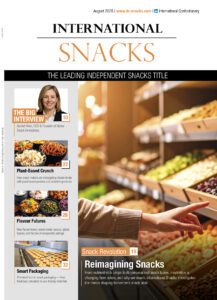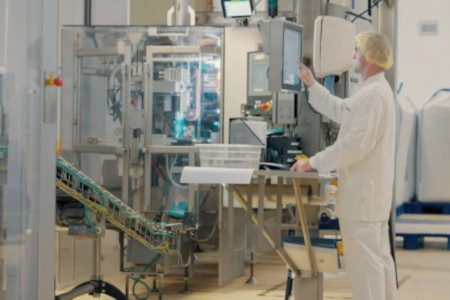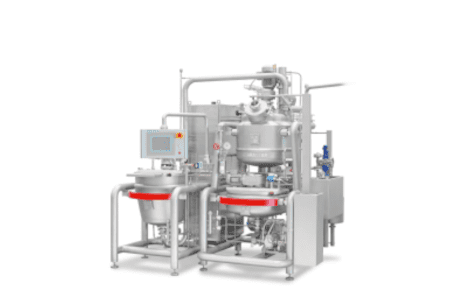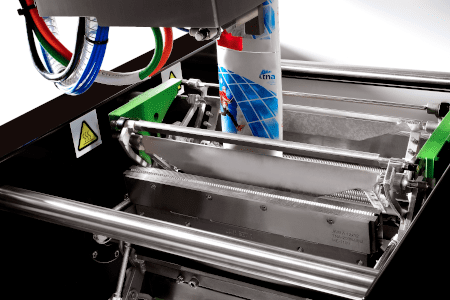With rising consumer demand for healthier, high-quality snacks and increased pressure for sustainable production, the biscuit and bar industry is evolving at a rapid pace. Managing Editor Rebecca Spayne investigates
The biscuit and bar segments are integral to the global snacking industry, offering consumers a diverse range of snack options that cater to evolving tastes and dietary preferences. In 2024, the global biscuits market was valued at approximately USD 108.75 billion and is projected to reach USD 167.69 billion by 2032, growing at a compound annual growth rate (CAGR) of 5.70%. This expansion is driven by factors such as urbanisation, rising disposable incomes, and increasing demand for convenient and nutritious snack options.
Consumers today seek products that not only provide indulgence but also align with their values regarding quality, efficiency, and sustainability. As a result, manufacturers are leveraging automation, energy-efficient processes, and advanced ingredient technologies to enhance production while minimising waste. Leading companies, including Baker Perkins, Bühler, and Aasted, are at the forefront of these innovations, setting industry standards in precision processing, automation, and energy conservation.
Enhancing Efficiency with Automation and High-Throughput Production
As demand for biscuits and bars continues to grow, manufacturers are prioritising efficiency by investing in high-throughput production lines. These systems integrate continuous mixing, high-speed forming, and precision baking to maximise output while maintaining consistent product quality. Modern production lines are designed to optimise energy consumption and reduce ingredient waste, leading to cost savings and improved sustainability.
The use of real-time monitoring and data analytics has become a critical aspect of high-throughput production. By employing sensors and AI-driven analytics, manufacturers can track key performance indicators (KPIs) such as temperature, humidity, and dough consistency in real time. This allows for immediate adjustments, preventing defects and reducing downtime. Predictive maintenance also plays a significant role, ensuring that machinery operates at peak efficiency and minimising unexpected breakdowns that can disrupt production.
Companies such as Baker Perkins and Bühler lead in precision mixing and forming technologies, enabling manufacturers to produce a variety of biscuit and bar textures with high accuracy. These innovations support the development of diverse product lines, from crisp crackers to soft protein bars, meeting the preferences of different consumer segments. Additionally, energy-efficient baking systems, such as those developed by Aasted, are reducing energy consumption while maintaining optimal baking conditions.
Automation is also transforming packaging operations. Companies like Gerhard Schubert and Syntegon Packaging Systems have pioneered robotic solutions that enhance speed and flexibility in the packaging process. These systems enable rapid adaptation to different product formats and packaging styles, ensuring that manufacturers can efficiently switch between product lines without major operational disruptions. The integration of robotics reduces reliance on manual labour, improving hygiene standards and overall efficiency in food production environments.
Another key factor in high-throughput production is modularity. The ability to quickly adapt to seasonal trends, limited-edition products, and market shifts is crucial. Modular production lines and automated changeover systems allow manufacturers to switch between product variants seamlessly, reducing downtime and enhancing overall productivity. This adaptability not only improves operational efficiency but also enables manufacturers to respond swiftly to changing consumer preferences and emerging market trends.
Meeting Health-Conscious Consumer Demands
The growing emphasis on health and wellness has had a profound impact on the biscuit and bar industry. Today’s consumers are not just looking for indulgent snacks but also products that provide functional health benefits. This has led to an increase in demand for high-protein, low-sugar, gluten-free, organic, and fibre-rich options, prompting manufacturers to reformulate and innovate their product lines.
A prime example of this shift is Arnott’s expansion of its gluten-free product range in 2021, which experienced strong sales growth and prompted further investment in dedicated manufacturing facilities. Similarly, other major brands are incorporating functional ingredients such as plant-based proteins, ancient grains, and dietary fibres to create healthier alternatives without sacrificing taste or texture. The rise of plant-based snacking has also spurred the development of protein bars made with faba beans, pea protein, and soy-based formulations, catering to consumers seeking sustainable and nutritious options.

